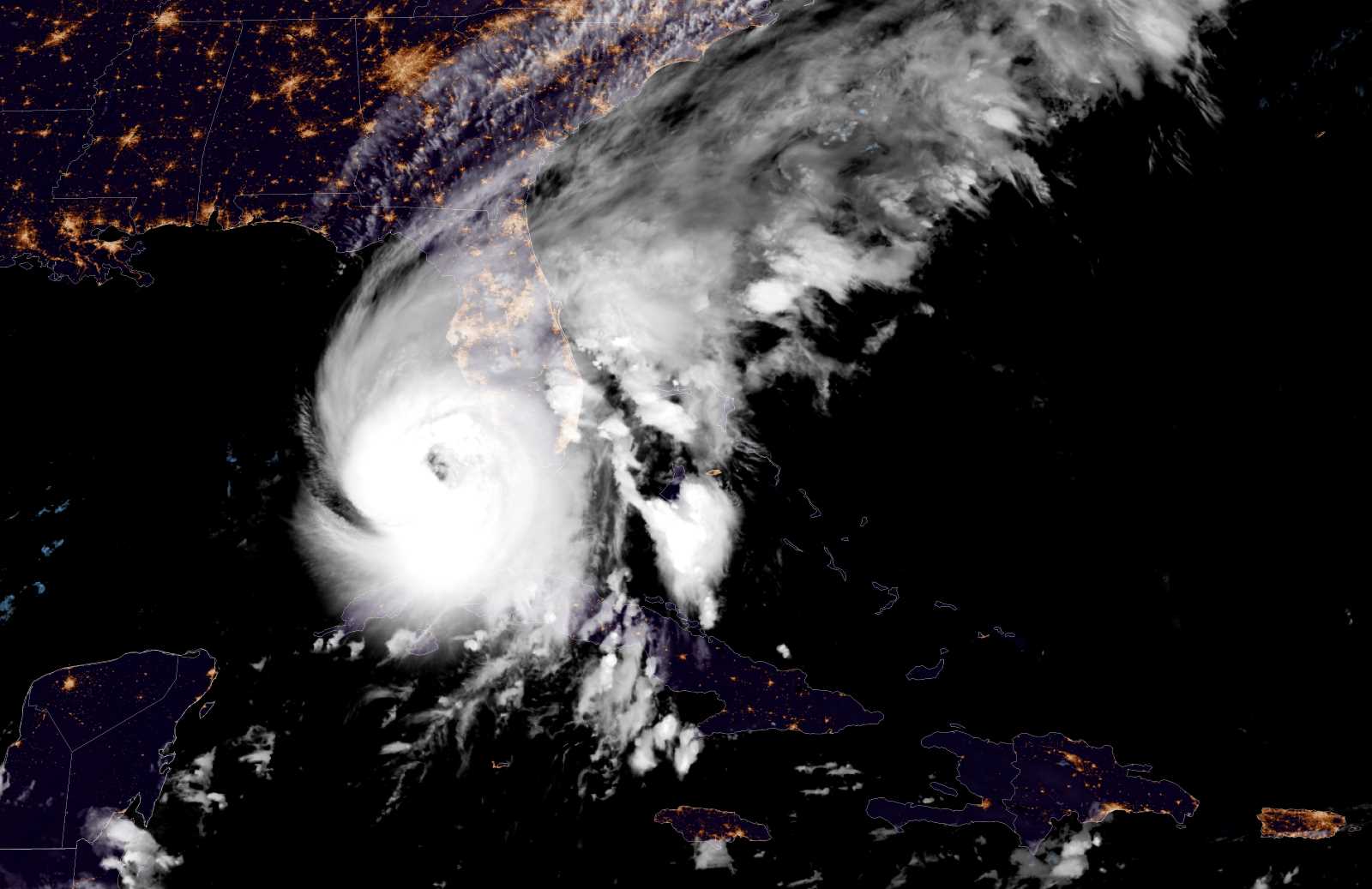Blog
US democracy is still in danger

German history shows what is likely to happen if right-wing extremism is allowed to grow, unchecked by state institutions and pandered to by supposedly mainstream conservatives. That is how the Nazis rose to power. The lesson is that a democracy must be vigilant. It must not tolerate forces that want to put an end to it.
The drama of 6 January was broadcast on TV internationally. A president refused to accept the results of an election he had lost. He wanted the Senate and House of Representatives to reject those results and told supporters to fight for that purpose. One of their slogans was: “Hang Mike Pence!” They were upset that Pence, the vice president at the time, was not obstructing the normal procedures as Trump wanted him to and they hoped he would.
There can be no serious doubt that this was an attempted coup. It failed. To judge by German history, the rightfully elected government, the legislature and the judiciary should now do their very best to ensure that everyone involved in the coup faces the full force of the law. Impunity is a recipe for disaster. If this kind of insurgency is tolerated or played down, democracy stays endangered. It was attacked, after all, and the culprits are likely to strike again – once they are able to do so.
Relying on Trump supporters
For this reason alone, Youngkin’s victory in Virginia is deeply disturbing. Like most Republican politicians, he likes to pretend:
- that nothing much happened on 6 January,
- that most people involved were good-willing patriots and
- that it is time to look forward.
His campaign was designed to attract anyone who still supports Trump and even the insurgency. It is safe to say that he could not have won without those people. His margin was quite small. The trouble is that Trump remains popular among the Republican base.
German history tells us that conservatives who thought they could control right-wing extremists in a coalition eventually enabled Adolf Hitler to rise to power. Youngkin’s stance towards Trump is irresponsible.
The racist connotations of Youngkin’s campaign are equally worrisome. He agitated against critical race theory, suggesting that it amounts to something like anti-white racism. A core tenet of critical race theory is that racism is not simply about personal hatred and that systemic racism matters just as much. In the USA, systemic racism means that Black people, native Americans and other minorities have worse opportunities. That is evident in various statistics on income, educational achievement or political representation.
To deny that systemic racism exists is actually an expression of racism. The denial adds insult to injury. The suffering of disadvantaged communities must be acknowledged because it is real. Truth matters – but today’s Republicans, including Youngkin, do not want to face it. As the Black intellectual Heather McGhee has shown, a society that excludes large numbers of people does not develop any healthy understanding of the public good.
On the campaign trail, Youngkin agitated against the Black novelist and noble laureate Toni Morrison. To sum a complex story up briefly, he argued that her descriptions of sexualised and other forms of violence perpetrated by white slaveholders against slaves in the past had traumatised white high-school students. His message was that white teenagers should not be exposed to any disturbing truth concerning their country’s past. Depressingly, it resonated with many Virginian voters.
Yes, Morrison writes fiction, but good novels are truthful nonetheless. The point is that no one denies that the kind of atrocities she wrote about did indeed happen. The controversy is merely about whether high-school students should know about it. If we applied that message to Germany, our schools would stop informing our young generation about the Nazi genocide and World War II. Quite obviously, that would mean shying away from our less-than-pleasant history of totalitarian dictatorship. Shying away from the USA’s embarrassing history of slavery is not better.
Let me spell out clearly: Youngkin did win a majority of votes. What is worrysome is that a majority of voters chose someone who shows so little concern for the foundations of democracy. While turnout among Republican-leaning voters was high, many people who voted for Biden last year stayed home. Many are disappointed because Biden, so far, has not delivered what he promised, and many feel exhausted by constant right-wing agitation.
Constitutional crisis
Many people think that US democracy is safe because Joe Biden is now president. Unfortunately, they are wrong. If you don’t believe me, check out what neo-conservative intellectual Robert Kagan wrote in the Washington Post in mid-September. The title of his essay was “Our constitutional crisis is already here”. His points include:
- Donald Trump’s clout among Republicans remains strong.
- Many of them are falsely claiming that the past presidential election was stolen and are preparing to steal the next one.
- Changes of election laws in various Republican-run states are designed to facilitate that, for example by making it harder for minorities to vote.
The list goes on, and I really recommend reading the essay. In January, I mentioned in a blogpost that Democrats were preparing a federal law to safeguard voting rights. The sad truth is that this debate has stalled, while Republican efforts to manipulate future elections in their favour are still going on.
Part of the problem is that the Biden administration has been somewhat half-hearted about deepening democracy and prosecuting criminal behaviour of the previous administration. Top officials, including the president himself to some extent, do not want to appear to be using their office to gain political advantages. Appearances do matter, of course, but the rule of law is more important.
When the previous president and those who served him enjoy impunity because crimes they committed are not prosecuted stringently, the rule of law is undermined. When election-law reforms disenfranchise adults who are entitled to vote, they sabotage the constitutional order. To German eyes, what is going on in the USA is terrifying.
Attempts to entrench minority rule in the USA were evident in the Trump years as I argued last year. In some ways, minority rule has already been established. Here I will only repeat two points. The first example is the Supreme Court. Six of nine justices were appointed by Republican presidents, even though the nation itself leans slightly towards Democrats. Since 1992, Democrats won the popular vote in seven of six presidential elections since 1992.
Another example is the Senate, where every state has two representatives. Tiny, predominantly white and assertively conservative Wyoming has two senators, just like huge, multiracial and reliably liberal California. The capital city, Washington DC, has a large Black community, but is not a state, and is thus not represented in the Senate at all. Nor is Puerto Rico with its predominantly Hispanic people. Puerto Rico is not a state, even though its population (3,3 million) is almost as big as those of Wyoming, Vermont, Alaska, North Dakota and South Dakota together (3.6 million).
US democracy is unwell. It may indeed die. The Democrats currently control the White House and both chambers of Congress. They must stop worrying about appearances and act decisively to protect and deepen democracy. This is an issue of global relevance.
The climate crisis is an example. Biden has proposed many policies to fight global warming. The majority of US citizens voted for senators who support those polities. Nonetheless, the Biden agenda has been whittled down in the Senate. Fifty Republican senators, who represent about 40 million fewer voters than the 50 Democratic senators, oppose climate action. It is true that two Democratic senators have been causing problems too, but Biden promises they will eventually come aboard after having trimmed down the agenda. If Washington DC had two senators and Porto Rico had another two senators, things would probably look quite different. All four would probably be Democrats or independents leaning towards Democrats. Biden's agenda, which also includes social-protection policies, would quite likely have been passed by now.
At the climate conference in Glasgow, the US delegation could act much more convincingly if Congress had endorsed a climate agenda at all and especially if that climate agenda were more decisive than what is being debated today. In this sense, the international community is at the mercy of an unrepresentative US Senate. As mentioned above, a society that excludes large numbers of people (in this case the inhabitants of Puerto Rico and Washington) normally does a bad job in the pursuit of the public good.
Biden likes to speak out in favour of democracy internationally. His rhetoric would be far more convincing if democracy were in a better shape in the nation he is leading. Oh, and many of his voters in Virginia would not feel as disappointed as they obviously do.
Hans Dembowski is the editor in chief of D+C/E+Z.
euz.editor@dandc.eu












